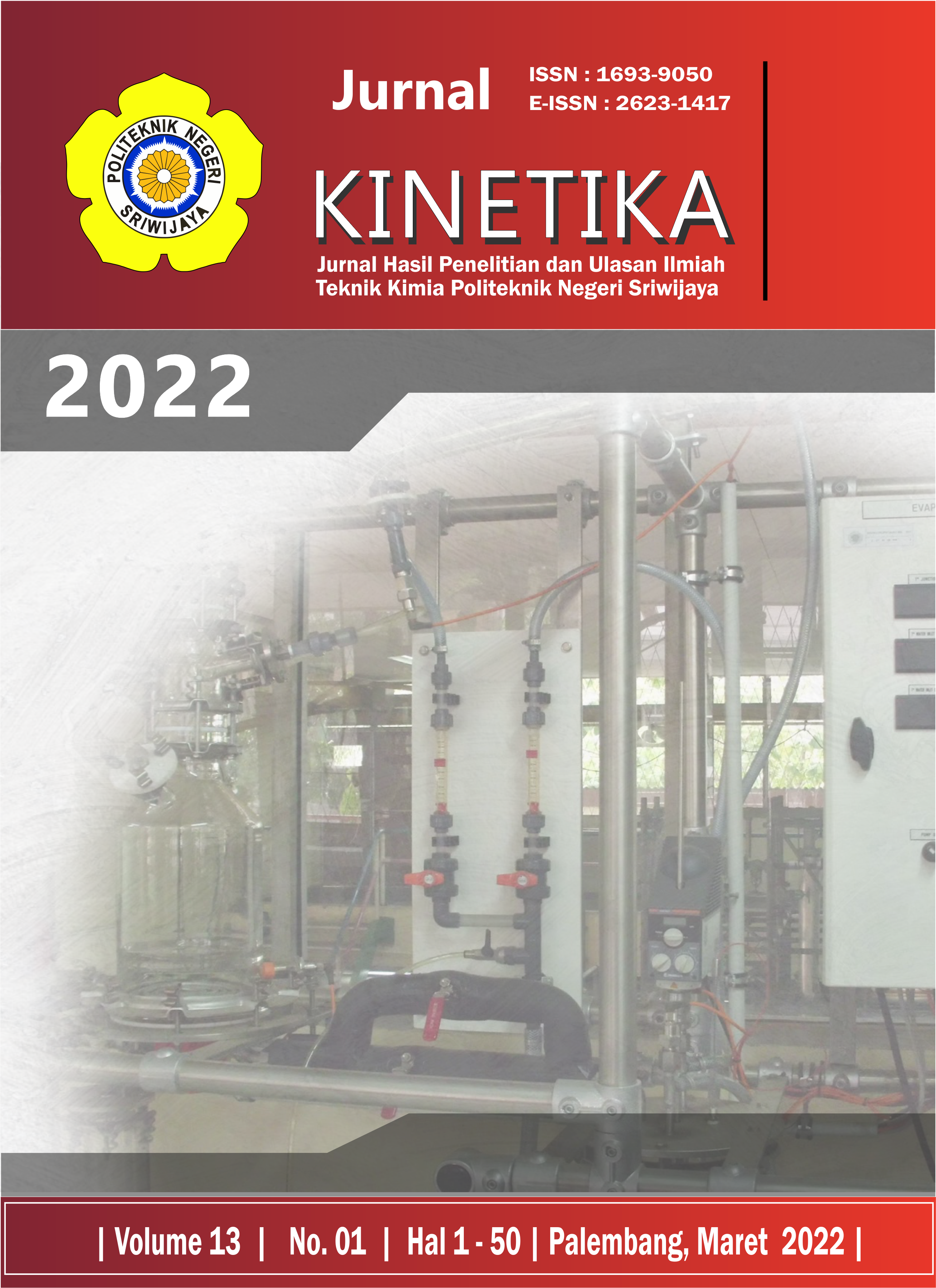EFEKTIVITAS KULIT UDANG (METAPENAEUS MONOCEROS) SEBAGAI BIOKOAGULAN PADA AIR SUNGAI KELEKAR MENJADI AIR BERSIH
(STUDI KASUS : AIR SUNGAI KELEKAR SEBAGAI AIR BERSIH DI INTAKE WATER PLANT PLTGU INDRALAYA)
Abstract
Research on the effectiveness of shrimp shells as biocoagulants in improving water quality has been carried out. This study aims to determine the ability of shrimp shell waste as a biocoagulant to improve water quality and the effect of water on the parameters of pH, Conductivity, Turbidity, Silica and Fe. Contacting the coagulant with river water using a jartest at 200 rpm for 1 minute. The effective concentration of chitosan coagulant was 100 mg/l and Aluminum Sulfate which decreased more was 150 mg/l. The results showed that chitosan was able to reduce the parameters of Conductivity 51.95%, Turbidity 87.14%, Silica 58.21% and Fe 75.80%. Aluminum sulfate coagulant with a dose of 150 mg/l can reduce 39.32 % Conductivity, 65.80 % Turbidity, 38.75 % Silica, and 41.29 % Fe. The effectiveness of the shrimp shell coagulant is higher than the aluminum sulfate coagulant, it shows that the shrimp shell is able to act as a coagulant for the kelekar river water into clean water at PLTGU Indralaya.


